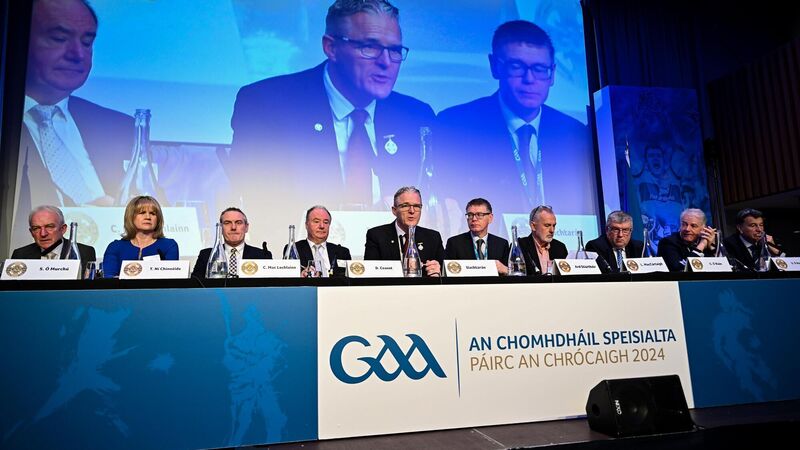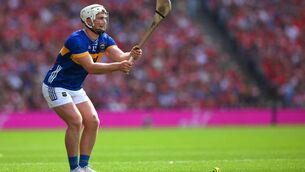Ger Aherne: 'One of the saviours of GAA and amateurism might be the Revenue Commissioners'

The tob table, from left, GAA trustee John Murphy, GAA trustee Tracey Kennedy, Ulster GAA president Ciarán McLoughlin, Leinster Council chairman Derek Kent, Uachtarán Chumann Lúthchleas Gael Jarlath Burns, Ard Stiúrthóir of the GAA Tom Ryan, former GAA president Larry McCarthy, Munster GAA chairman Ger Ryan, Connacht GAA Council president Vincent Neary and Britain GAA president Seán Hopkins during the GAA Special Congress 2024 at Croke Park in Dublin. Photo by Piaras Ó Mídheach/Sportsfile
On Friday afternoon, a few hours before the 2025 Annual Congress commenced in Donegal, the GAA’s Central Council were briefed by director general Tom Ryan on forthcoming developments from the amateur status review committee.
Protecting the voluntary ethos of the organisation has been a cornerstone subject for GAA president Jarlath Burns since he announced the creation of the body upon coming into office 12 months ago. “It has to start for next year,” he said.
A collection of the latest sports news, reports and analysis from Cork.













